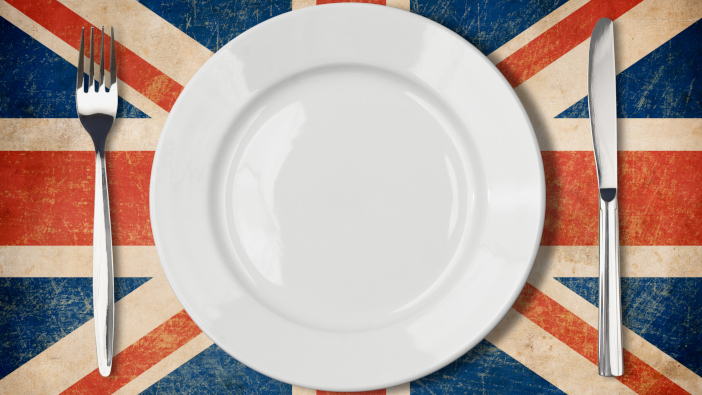Are consumers at risk of seeing more empty shelves in the nation’s supermarkets? The NFU warns that this will be the case without significant backing from the government to secure a home-grown supply of sustainable food.
At an emergency press conference held on the same day as Defra’s consultation with egg supply chain representatives and a meeting of NFU horticulture board members, the NFU warned that egg, fruit and veg growers are under huge pressure owing to soaring energy costs and workforce shortages and other agricultural sectors could soon be under similar threats.
Pressure on the government was driven by Minette Batters, NFU President, who urged the Prime Minister, Rishi Sunak, to honour energy crisis commitments he made towards British producers and to set a target for the nation’s food security with a statutory duty to report on domestic food levels.
Mrs Batters said: “Food, produced with care by British farmers, is critical to our nation’s security and success. But British food is under threat.
“Only last week, the former Director General of MI5, The Baroness Manningham-Buller, said that food is part of our critical national infrastructure and that government needs to be consistent in planning for our food supply. I couldn’t agree more, particularly at a time when global volatility is threatening the stability of the world’s food production, food security and energy security.”
She continued, saying that the egg supply chain has been ‘crippled’ by these issues and the country is at risk of slipping into a food supply crisis. Mrs Batters urged the government to act immediately as the future of British fruit and vegetable supplies is already in danger.
NFU reports that there are 7,000 fewer Agricultural Register Businesses in the UK today than there was before the pandemic (2019 = 149,500; 2022 = 142,500) – a 5% reduction over 3 years. Cost inflation has made a significant contribution to this; the soaring rate of inflation has led to rates being unrecognisable compared to 2019 prices. Since 2019, animal feed raw materials have increased by 75%, Nitrogen fertiliser by 240% and wholesale gas by a staggering 650%. Budgeting and planning in this climate has become an impossibility due to the volatility and uncertainty in costs.
Impact on food production
Egg producers have faced significant disruption, with many being forced to reduce capacity to manage the rising costs. There are 4.9 million (13%) fewer egg-laying hens in the UK compared to 2019, with 320 million fewer eggs produced between July and September 2022 compared to the same three months in 2019. NFU are asking for action to be taken to allow Defra to utilise its statutory powers to provide support to the egg producers.
Similarly, horticultural farmers are also showing a significant reduction in production, with levels for many crops expected to fall to its lowest level since data began in 1985. Many growers in England and Wales have already cut production by as much as 20-30% in 2022, with more cuts expected, or even ceasing trading completely, during the coming year. The crops which have been disproportionately affected by rising costs (tomatoes, cucumbers, lettuces, celery and peppers) have seen production reduce by 8500 tonnes (3.2%) due to the energy required to maintain the controlled environment needed to grow them. NFU’s recent Promar report states that the cost of production for growers has increased by up to 27% with the main causes being energy (up 165%), fertiliser (up 40%) and workforce costs (up 13%)
NFU are requesting continued support for British beef and lamb which is produced to some of the most sustainable and highest animal welfare systems in the world. In Autumn 2022, the NFU’s survey of livestock members showed that 9.6% of the 1000+ respondents are considering reducing breeding herd numbers over the next 12 months. The main reasons for this were increased input costs, loss of direct payments and concerns about the new ELMS scheme
Trade
While imports can play a vital role in ensuring diversity of supply, they can also increase pressure on UK farmers, especially if reciprocal export opportunities are not negotiated. Deals for the UK have already been struck with Australia and New Zealand and there are plans to renegotiate existing deals with Canada and Mexico, all of whom are major agricultural producers. The NFU remains clear all new trade deals lead to balanced outcome. All food imports must meet the same high standards required of our own farmers – for example, ensuring beef produced using chemical washes or growth promotants and eggs from battery-caged hens are not permitted on the market.
NFU’s key asks
In order avoid the current and predicted difficulties and challenges, the NFU listed five key asks that need to be addressed:
- An urgent Defra investigation into whether an ‘exceptional market conditions’ declaration should be made under the Agricultural Act 2020, given the severe disruption that egg producers and UK consumers are experiencing. This would allow Defra to use statutory powers to provide support to egg producers.
- Fairer terms for dairy farmers to be enforced through the regulation of dairy contracts, as promised by the government in 2021.
- Fair treatment of fruit and veg growers and a commitment from the government to lift the cap on the seasonal worker scheme to allow for an increased number of visas available to meet the essential workforce needs.
- The delivery of promises made by Rishi Sunak in August 2022. In particular, establishing a new food security target, including a statutory duty to monitor and report on domestic food production levels annually, to hold a UK-wide annual food security summit and introduce a new target for public sector organisations to buy 50% of their food locally.
- The final request is a commitment from the government and across the sector to view agriculture and horticulture as a vulnerable sector regarding energy security.


